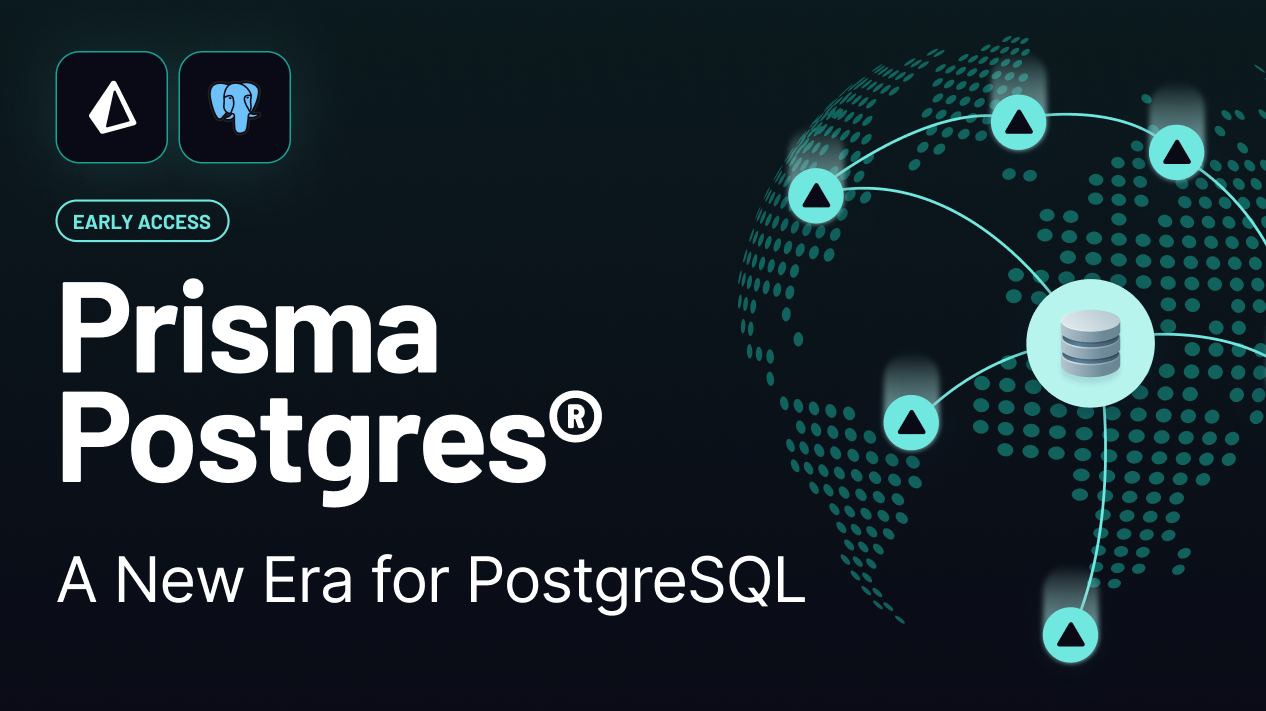
PostgreSQL
/pg138
A place to discuss the PostgreSQL RDBMS
wow!
I didn't realize AWS has a mechanism for taking consistent snapshots across EBS volumes.
https://aws.amazon.com/blogs/storage/taking-crash-consistent-snapshots-across-multiple-amazon-ebs-volumes-on-an-amazon-ec2-instance/
I didn't realize AWS has a mechanism for taking consistent snapshots across EBS volumes.
https://aws.amazon.com/blogs/storage/taking-crash-consistent-snapshots-across-multiple-amazon-ebs-volumes-on-an-amazon-ec2-instance/
Fascinating to think about optimizing loops for CPUs. I wonder if PG's numeric additions could benefit from a more branchless approach
https://github.com/postgres/postgres/blob/4f15759bdcddd23e874526a6b2c0ff86e0beb042/src/interfaces/ecpg/pgtypeslib/numeric.c#L637-L754
https://15721.courses.cs.cmu.edu/spring2023/slides/06-execution.pdf
https://github.com/postgres/postgres/blob/4f15759bdcddd23e874526a6b2c0ff86e0beb042/src/interfaces/ecpg/pgtypeslib/numeric.c#L637-L754
https://15721.courses.cs.cmu.edu/spring2023/slides/06-execution.pdf
UPDATE heavy workloads on PG are known to scatter rows around on pages which may increase IO when scanning many rows in a single query. Unless you are getting 100% HOT updates (most aren't).
To solve this in the past, I've used CLUSTER -- which isn't great because it requires a lock and takes a long time. It's almost unusable.
pg_repack solves this by doing online re-clustering and storage reclamation.
https://reorg.github.io/pg_repack/
To solve this in the past, I've used CLUSTER -- which isn't great because it requires a lock and takes a long time. It's almost unusable.
pg_repack solves this by doing online re-clustering and storage reclamation.
https://reorg.github.io/pg_repack/
https://www.cs.cmu.edu/~pavlo/blog/2023/04/the-part-of-postgresql-we-hate-the-most.html
Spoiler: MVCC
This also helps bring awareness to the impact of UPDATE heavy workloads on PG
Spoiler: MVCC
This also helps bring awareness to the impact of UPDATE heavy workloads on PG
A rebuttal to Uber’s PG/MySQL paper.
Keep in mind, PG has changed since this discussion. A lot of the replication issues are long since put to rest.
The storage sub-systems are the interesting point of difference between these systems. MYSQL’s indexes point to primary keys instead of a CTID. An update to a MySQL row will have same storage location but PG will be a new CTID/page — unless it was a Heap Only Tuple (HOT) update. But this means PG can reduce IO for queries.
As with anything, it’s always a tradeoff. However, database systems in particular are especially sensitive to workload details. The tradeoffs really matter!
https://thebuild.com/presentations/uber-perconalive-2017.pdf
Keep in mind, PG has changed since this discussion. A lot of the replication issues are long since put to rest.
The storage sub-systems are the interesting point of difference between these systems. MYSQL’s indexes point to primary keys instead of a CTID. An update to a MySQL row will have same storage location but PG will be a new CTID/page — unless it was a Heap Only Tuple (HOT) update. But this means PG can reduce IO for queries.
As with anything, it’s always a tradeoff. However, database systems in particular are especially sensitive to workload details. The tradeoffs really matter!
https://thebuild.com/presentations/uber-perconalive-2017.pdf
Using stored procedures for complex query patterns makes sense, but I don't have an intuition for the kind of query complexity necessary before seeing tangible benefits switching from prepared statements.
Glad someone is experimenting! https://github.com/pg-nano/pg-nano/
Glad someone is experimenting! https://github.com/pg-nano/pg-nano/
initial thoughts on AWS DSQL
1. PG compatible (pg is dominant at this point)
2. Most of the article talked about HA
3. AWS has a proprietary, internal distributed transaction log service that is supposedly the most important piece of AWS and everything in AWS depends on it. Hope that teams makes 10M annual tc each.
4. It depresses me to think that the future of compute and storage is: run it on aws
It's really neat to think about having a network storage layer that can support many database frontends. this seems like the future. Neon et al. are moving in this direction. Also something that Stonebraker has been talking about for a while now.
https://aws.amazon.com/blogs/database/introducing-amazon-aurora-dsql/
1. PG compatible (pg is dominant at this point)
2. Most of the article talked about HA
3. AWS has a proprietary, internal distributed transaction log service that is supposedly the most important piece of AWS and everything in AWS depends on it. Hope that teams makes 10M annual tc each.
4. It depresses me to think that the future of compute and storage is: run it on aws
It's really neat to think about having a network storage layer that can support many database frontends. this seems like the future. Neon et al. are moving in this direction. Also something that Stonebraker has been talking about for a while now.
https://aws.amazon.com/blogs/database/introducing-amazon-aurora-dsql/
https://avi.im/blag/2024/zero-disk-architecture/
This is a really neat idea. Low latency, CAS, and append are killer S3 features.
But kind of dystopian to think that all our data is owned and operated by a single US company.
WDYT?
This is a really neat idea. Low latency, CAS, and append are killer S3 features.
But kind of dystopian to think that all our data is owned and operated by a single US company.
WDYT?
It's quite rich that the "Tablespaces" section follows the "Destroying a Database" section since misconfiguring table spaces is an excellent way to absolutely hose your database.
pg_column_size is nice. I knew a bigint was 8 bytes, but I was curious to see the storage size for comparable numeric data.
What every programmer should know about solid-state drives
https://codecapsule.com/2014/02/12/coding-for-ssds-part-6-a-summary-what-every-programmer-should-know-about-solid-state-drives/
https://codecapsule.com/2014/02/12/coding-for-ssds-part-6-a-summary-what-every-programmer-should-know-about-solid-state-drives/
I'm behind the times—apparently folks have been running Postgres on unikernels for quite some time†.
https://www.prisma.io/blog/announcing-prisma-postgres-early-access
https://nanovms.com/dev/tutorials/running-postgres-as-a-unikernel †
https://www.prisma.io/blog/announcing-prisma-postgres-early-access
https://nanovms.com/dev/tutorials/running-postgres-as-a-unikernel †

Prisma Postgres®: Building a Modern PostgreSQL Service Using Unikernels & MicroVMs
At Prisma, we believe that deploying a database should be as simple as adding a new page in Notion. Today, we are excited to share the first milestone towards this vision: Prisma Postgres® gives developers an always-on database with pay-as-you-go pricing, thanks to our unique architecture design.
www.prisma.io
Running Postgres as a Unikernel
This isn't the first time we took a look at running postgres as a unikernel. A few years ago one of our engineers took a look at how difficult it might be to port it.
nanovms.com
Damn.
Screen shot from this talk on PG/ZFS
https://people.freebsd.org/%7Eseanc/postgresql/scale15x-2017-postgresql_zfs_best_practices.pdf
Screen shot from this talk on PG/ZFS
https://people.freebsd.org/%7Eseanc/postgresql/scale15x-2017-postgresql_zfs_best_practices.pdf
Config for running PG on ZFS
https://vadosware.io/post/everything-ive-seen-on-optimizing-postgres-on-zfs-on-linux/
https://vadosware.io/post/everything-ive-seen-on-optimizing-postgres-on-zfs-on-linux/
Fun PG-related meetup for the SF folks
1229
Harry
@htormey·17:05 30/10/2024
Hosting a panel of expert speakers from engineering at Roblox, YugabyteDB and Coinbase tonight in SF. The subject is SQL at scale, if you are interested in joining signup below. Should be an interesting discussion. https://lu.ma/rcr09cp4
I love these 5 minutes of Postgres videos. Here's a good one on upcoming IO changes:
https://www.youtube.com/watch?v=QAYzWAlxCYc
https://www.youtube.com/watch?v=QAYzWAlxCYc
Did you know that Postgres was originally written in LISP? (and C)
"We expected that it would be especially easy to write the optimizer and inference engine in LISP, since both are mostly tree processing modules"
https://dsf.berkeley.edu/papers/ERL-M90-34.pdf
"We expected that it would be especially easy to write the optimizer and inference engine in LISP, since both are mostly tree processing modules"
https://dsf.berkeley.edu/papers/ERL-M90-34.pdf
PostgreSQL's C driver is called: libpq
What's PQ?
Q was short for QUEL. QUEL is a dead query language once used by Ingress. PostgreSQL was post-Ingress.
At one time PG supported a query language called PostQUEL.
What's PQ?
Q was short for QUEL. QUEL is a dead query language once used by Ingress. PostgreSQL was post-Ingress.
At one time PG supported a query language called PostQUEL.
https://www.depesz.com/2022/07/05/understanding-pg_stat_activity/
1) Depsez is pg legend
2) This is a great explainer on pg_stat_activity
1) Depsez is pg legend
2) This is a great explainer on pg_stat_activity
just added a new chain to @indexsupply and used PG 17!
eager to see how the new vector IO impacts table scans
eager to see how the new vector IO impacts table scans
Very slick: https://postgres.new
Now make a system that takes your schema and inspects pg_stat_statements on your production system and makes actionable recommendations of migrations to improve performance.
Now make a system that takes your schema and inspects pg_stat_statements on your production system and makes actionable recommendations of migrations to improve performance.
Fantastic talk on PG's share buffers -- and memory in general
https://www.youtube.com/watch?v=u-r8VuzXeBE
https://www.youtube.com/watch?v=u-r8VuzXeBE
One of those ideas that sounds good at first but upon deeper reflection reveals otherwise (project abandoned). Might still be useful for querying information about your infrastructure, but not for creating.
https://iasql.com
https://iasql.com
Supabase CEO on user complaints the self hosted version is limited and sucks compared to the cloud version
https://www.reddit.com/r/selfhosted/s/v02qg93ao9
https://www.reddit.com/r/selfhosted/s/v02qg93ao9
How does Postgres manage to do this? 🧐
SELECT S
WHERE W
ORDER BY O
> takes 0.193s
-----
SELECT S
WHERE W
ORDER BY O
LIMIT 20
> takes 74.129s
SELECT S
WHERE W
ORDER BY O
> takes 0.193s
-----
SELECT S
WHERE W
ORDER BY O
LIMIT 20
> takes 74.129s
I enjoy using PGTune when setting up a fresh pg server. Maybe you will too:
https://pgtune.leopard.in.ua
https://pgtune.leopard.in.ua
An enjoyable read on how PG encodes NUMERIC data:
https://github.com/postgres/postgres/blob/05a5a1775c89f6beb326725282e7eea1373cbec8/src/backend/utils/adt/numeric.c#L253-L303
https://github.com/postgres/postgres/blob/05a5a1775c89f6beb326725282e7eea1373cbec8/src/backend/utils/adt/numeric.c#L253-L303
FSMs as a core data primitive are going to get more popular. Combined with a runtime library for your preferred language, and you have a way to formally verify statements about business logic in your system.
https://raphael.medaer.me/2019/06/12/pgfsm.html
https://raphael.medaer.me/2019/06/12/pgfsm.html
Anyone got a feature / fix that they are eager to see land in 17?
Here are a few I'm looking forward to:
- COPY option ON_ERROR ignore to discard error rows
- to_bin() and to_oct()
Here are a few I'm looking forward to:
- COPY option ON_ERROR ignore to discard error rows
- to_bin() and to_oct()
Impressive tool from Xata providing a solution for zero-downtime, REVERSIBLE (!!!) migrations—the holy grail.
Excited for this to eventually reach v1. Current feature set is very impressive, but it's not yet ready to handle all possible migrations just yet. Something to keep an eye on.
https://xata.io/blog/pgroll-schema-migrations-postgres
Excited for this to eventually reach v1. Current feature set is very impressive, but it's not yet ready to handle all possible migrations just yet. Something to keep an eye on.
https://xata.io/blog/pgroll-schema-migrations-postgres
Great post on how PG lock behavior during schema changes. It's surprising (but obvious in hindsight) how a statement that obtains a lock which doesn't conflict with a schema change could still be blocked by another statement that does obtain a blocking lock, due to the FIFO nature of the lock queue.
https://xata.io/blog/migrations-and-exclusive-locks
https://xata.io/blog/migrations-and-exclusive-locks
Should be some good perf. improvements with v17
https://www.postgresql.org/docs/17/release-17.html#RELEASE-17-OPTIMIZER
in particular, some CTEs should get faster
https://www.postgresql.org/docs/17/release-17.html#RELEASE-17-OPTIMIZER
in particular, some CTEs should get faster
A CTE (WITH) can be MATERIALIZED or NOT MATERIALIZED.
When MATERIALIZED, the query is computed only once for the outer query. Good for reducing work. Not good when you reference the CTE multiple times with different predicates.
NOT MATERIALIZED forces PG to "inline" the CTE which allows predicate push down but possibly duplicates work.
The default is MATERIALIZED when a CTE is referenced more than once.
https://www.postgresql.org/docs/current/queries-with.html#QUERIES-WITH-CTE-MATERIALIZATION
When MATERIALIZED, the query is computed only once for the outer query. Good for reducing work. Not good when you reference the CTE multiple times with different predicates.
NOT MATERIALIZED forces PG to "inline" the CTE which allows predicate push down but possibly duplicates work.
The default is MATERIALIZED when a CTE is referenced more than once.
https://www.postgresql.org/docs/current/queries-with.html#QUERIES-WITH-CTE-MATERIALIZATION
TIL pg source has a helpful README for the Executor
https://github.com/postgres/postgres/blob/master/src/backend/executor/README
https://github.com/postgres/postgres/blob/master/src/backend/executor/README
Good article on correlated / uncorrelated subqueries:
https://www.cybertec-postgresql.com/en/subqueries-and-performance-in-postgresql/
https://www.cybertec-postgresql.com/en/subqueries-and-performance-in-postgresql/
without looking it up, please guess the following limits:
1. relations per database
2. relation size
1. relations per database
2. relation size
I really enjoy using _actual_ postgres servers in my tests. Packages like this one: https://github.com/theseus-rs/postgresql-embedded make it fast and easy!
With an unlogged table, Postgres is fast as a cache. Downside is unlogged tables aren't replicated, and so this pattern doesn't scale.
https://www.cybertec-postgresql.com/en/postgresql-vs-redis-vs-memcached-performance/
https://www.cybertec-postgresql.com/en/postgresql-vs-redis-vs-memcached-performance/
What's a good rule of thumb for shared_buffers size? 25% of RAM?
Excellent overview of all the different kinds of lock in Postgres and the various SQL statements that invoke them:
https://medium.com/@hnasr/postgres-locks-a-deep-dive-9fc158a5641c
https://medium.com/@hnasr/postgres-locks-a-deep-dive-9fc158a5641c
PG incremental base backups seem really neat:
https://pganalyze.com/blog/5mins-postgres-17-incremental-backups
https://pganalyze.com/blog/5mins-postgres-17-incremental-backups
I sometimes find myself thinking: this would a great case for PG ARRAYs
But it always comes back to bite me
But it always comes back to bite me
Postgres in the browser. This space is starting to get really interesting.
https://github.com/electric-sql/pglite
https://github.com/electric-sql/pglite
most projects that "embed" pg binaries into the test suites end up using this one maven repo: https://mvnrepository.com/artifact/io.zonky.test.postgres
ZONKY
ZONKY
Postgres C hits different:
fctx->tupdesc = BlessTupleDesc(tupdesc);
https://github.com/postgres/postgres/blob/f4fdc24aa35c2268f519905a3a66658ebd55a466/src/backend/executor/execTuples.c#L2149-L2165
fctx->tupdesc = BlessTupleDesc(tupdesc);
https://github.com/postgres/postgres/blob/f4fdc24aa35c2268f519905a3a66658ebd55a466/src/backend/executor/execTuples.c#L2149-L2165



)


















